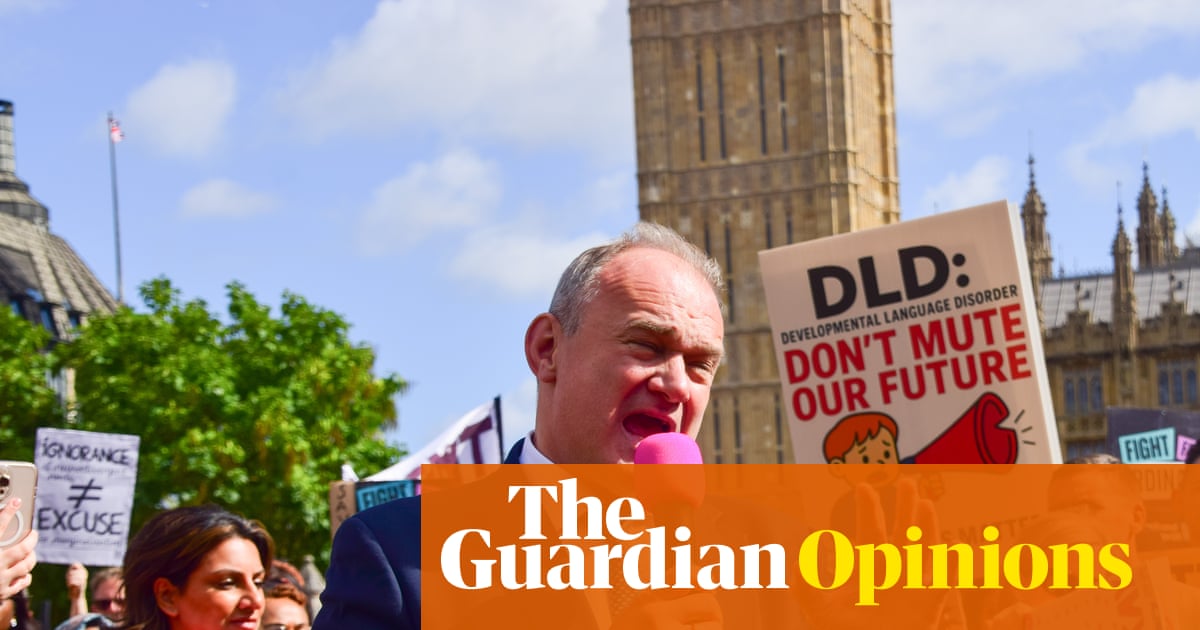In early summer the wide open fields of Lincolnshire seem to expand beneath even larger clear blue skies. Travel north through the breadbasket of Britain towards the North Sea, from Grantham to Grimsby, and farming gives way to factories, refineries and the Humber docks. Each sector tells a story of Britain’s industrial decline: the demise of heavy industry on the banks of the Humber, the closure of coal power plants, fishing fleets decimated by the cod wars of the 1970s and 80s.
Lincolnshire is at the heart of the government’s plan for the greatest economic step-change since the Industrial Revolution: a green re-industrialisation to help galvanise the country’s net zero agenda, create jobs and revitalise deprived areas.
Under this vision Britain’s ports will become the industrial heartlands for the burgeoning offshore wind sector, and refineries and factories will pioneer the carbon capture technology considered essential to reach the world’s climate goals. On shore, acres of gleaming solar panels will blanket farmland and the old sites of demolished coal power plants, with miles of pylons and cables crossing the county to connect the North Sea’s windfarms to the power grid.
This vision is on a collision course with the rise of Reform UK, as well as the tough economic climate, as the Guardian explores in a series. In few places is this battle more evident than Lincolnshire, a growing base for the hard-right party. Its founder, Nigel Farage, has called the government’s net zero ambitions a “lunacy” that destroys jobs, drives up energy bills and is responsible for the deindustrialising of Britain. He has predicted that the schism over net zero will be the “next Brexit”.
Meanwhile, the region’s remaining heavy industry is increasingly imperilled: the government had to intervene in April to prevent the abrupt closure of the Scunthorpe steelworks’ blast furnaces; the Lindsey oil refinery near Immingham is in deep financial trouble; and a neighbouring biodiesel plant owned by Greenergy, part of the commodities company Trafigura, is to close.
Fortress on the Fens
The consequences of that revolt against net zero are not only economic; they are profoundly political too.
In the market town of Boston in Lincolnshire, its former mayor is considering his future in local politics. Anton Dani was one of a handful of Conservative councillors who survived the march of rightwing populism across the county in recent years. The former Ukip councillor last month resigned from the Tory party and is considering another move – defecting to Reform.
“What they do best is talk to people face to face,” he says. . “It’s an idea lost on the big political parties.”

Lincolnshire is one of 10 local councils now controlled by Reform. It is also home to the party’s deputy, Richard Tice, the member of parliament for Boston and Skegness. The former Conservative minister Andrea Jenkyns was elected mayor for Greater Lincolnshire after switching to Reform in November.
The party’s rise to power was built on the success of the Brexit referendum campaign, Dani says, when the deepening concerns over immigration found a voice in the national conversation.
Lincolnshire was among the UK’s most Eurosceptic counties, with Boston recording the highest level of support for Brexit in the country, with 75.6% of votes cast in favour of leaving the EU in the 2016 referendum.
Today the same dissatisfaction with the established status quo is taking aim at the government’s long-held climate orthodoxy, bringing the concerns about Britain’s green agenda into mainstream politics for the first time after years of cross-party support.
Reform UK has said it will scrap the UK’s net zero legislation – and renewable energy subsidies along with it. A carbon-heavy pivot would accompany that: a Reform government would invest directly in North Sea oil and gas production, which it claims would secure the UK’s energy supplies and the workforce supported by the industry.
The party’s hardline stance has won support from people who fear that their livelihoods are at risk in part because of the UK’s shift away from fossil fuels. It also resonates with those who support cutting emissions through an expansion of renewable energy but disagree with the way the government has chosen to achieve this.
A ‘scar on the countryside’
In Lincolnshire a groundswell of resistance to the government’s solar power agenda is stoking the party’s popularity, according to Marianne Overton, an independent county councillor.
“This is the Lincolnshire countryside,” Overton says, driving north from Grantham, the birthplace of Margaret Thatcher, towards the site of the planned Springwell solar farm. The proposed site sprawls across 4,200 hectares, the size of 2,800 football pitches, between Lincoln and Sleaford.
David Suiter, an independent local councillor who has joined Overton in campaigning against the project, says: “If you look at a map, it will leave an enormous scar on North Kesteven. The scale is quite alarming.”
The government has already given the green light to six big solar farms across the country since last summer, including the Cottam Solar Farm. The largest solar farm ever approved in the UK stretches across 1,270 hectares, straddling Nottinghamshire and Lincolnshire on the site of the old Cottam coal power station, which shut in 2019, months after Theresa May’s government enshrined in law a commitment to reach net zero carbon emissions by 2050, making Britain the first major economy to do so.
There are far more solar farms awaiting approval in Lincolnshire than in any other county in the country, many dwarfing the Cottam project. Within months of Labour’s election victory Ed Miliband, the energy secretary, pledged to “take on the blockers, the delayers, the obstructionists” who have opposed the rollout of wind turbines, solar farms and pylons across the UK as a matter of “national security” and “economic justice”.
“It was wicked, in my opinion,” says Overton of Miliband’s pledge. The tough political stance has alienated many in Lincolnshire who fear that the government’s “builders and blockers” rhetoric will be mean Lincolnshire is forced to bear the brunt of the government’s plan to triple the UK’s solar power capacity.
Lincolnshire is expected to host more solar farms and battery centres than the rest of the country owing to the high number of defunct coal plants in the area that allow solar developers to reuse the old grid connections.
The county already hosts a network of overhead power lines and substations after decades as a major coal power generator. But the march of pylons is expected to continue as part of the UK’s £58bn grid repowering plan, bringing power generated by the windfarms in the North Sea and Scotland ashore via the Lincolnshire coast.
Last year plans were put forward to bring power 250 miles south, from a Scottish windfarm, along a cable laid on the sea bed, before terminating at two grid connection points in central and southern Lincolnshire. That proposal followed plans for an overland pylon route from Grimsby to Walpole, and five large electricity substations.
The pressures facing British farms mean that for some landowners solar power could prove to be their most lucrative crop in decades. But for tenant farmers, a decision to swap crops for solar panels means losing their livelihoods.
“Why are we losing some of the best agricultural land in the world to put up solar panels imported from Chinese companies which use coal power to run their factories?” Overton said.
“If the government is so concerned about emissions why aren’t all new buildings forced to be as close to energy self-sufficient as possible? If solar is the right solution, wouldn’t they start by requiring all commercial buildings to be covered in solar and be as efficient as feasible?”
Ultimately, ministers will need to do all these things and more to meet the 2050 deadline and tackle the climate crisis.
Generating more renewable energy is also central to the government’s industrial strategy, aimed at lowering the overall cost of energy for manufacturers and businesses. But Overton wants pragmatism in how the renewables rollout is implemented.
“I don’t think anyone here is against net zero when it makes sense. A local housing estate had rooftop solar installed recently which was extremely popular – it earns money for the council and still lowers bills. Wouldn’t it make sense to do this everywhere before industrialising the countryside?”
‘No such thing as a green welder’
The resistance to net zero in areas such as Lincolnshire may be explained in part by the belief in many local communities that the government’s green agenda will not create as many jobs or as much economic benefit as Britain’s deindustrialisation has taken.
In total, green jobs employed an estimated 639,400 in 2022, the Office for National Statistics shows. The majority of these jobs were in the waste industry, and about 2% were in renewable energy, according to the official data.
Although green jobs are growing fast, an annual survey of the sector by the auditor PwC found that the boom is not spread equally across Britain’s regions. In Scotland, green jobs make up 5.6% of the new jobs on offer, but in the East Midlands the figure is behind the national average of 3.3% at just 3.1%.
Growth in green jobs has also been most evident in London. The number advertised in the capital has climbed by almost a third since 2023, while in the East Midlands green jobs offered have risen by just over 6%.
By 2030 between 135,000 to 725,000 net new green jobs could be created, with the majority of these in installing energy-efficiency measures such as insulation and low-carbon heating, it found.
The leader of North East Lincolnshire council, Philip Jackson, says that while Britain’s booming offshore wind industry will soon create enough “good, high-paid jobs” in Grimsby to push up the average salary across Lincolnshire, “a lot of people in the area don’t yet realise that all this stuff is going on”.
“The offshore wind operations and maintenance facilities are confined to the ports, and the windfarms they serve are miles offshore,” he says.
The green jobs that are visible to the public – those building solar farms and grid connections – are often taken up by people coming into the area rather than local people, he adds.
“We need our residents to be able to take up the opportunities which are available in clean energy. The use of the word ‘green’ doesn’t help because people assume that it’s not for them. But actually we need skills that could be used across all sectors.”
For David Talbot, the boss of local skills and apprentice group Catch, part of the problem is in defining a “green job”.
“This is a transient workforce – they go where the work is – and sometimes that will be a refinery and then it might be carbon capture,” he says. “The lines between traditional industrial jobs and green jobs are a lot more blurred than you’d think.”
Earlier this year the government earmarked Lincolnshire alongside Aberdeenshire, Cheshire and Pembrokeshire for new, government-backed training programmes to help local people take advantage of the jobs created in clean energy.
“We are always very clear: we don’t need ‘green skills’ to get to net zero, we need traditional skills,” says Talbot. “Don’t get me wrong, green skills are needed at the higher levels of industry where people are designing carbon capture, for example.
“But there is a huge skills gap lower down which needs to be filled. And at the end of the day, there’s no such thing as a ‘green’ welder. People might not realise that they’re part of the net zero journey, but they’re absolutely critical to reaching our climate targets. Traditional trades are needed at scale to meet these targets.”
In Boston, Dani remains unconvinced. “I wouldn’t say [the government is] lying, but they’re misleading the country on net zero. We’ve been given slogans for hope, and spent billions, but it hasn’t made things better for people. Really, the decline of Britain’s industries isn’t about immigration or net zero. It’s about the arrogance of the major parties.”
Unless Labour can convince voters of the merits of cutting emissions and net zero – and that well-paid jobs will follow – Reform intends to convince the people of Lincolnshire of another way.

 2 months ago
58
2 months ago
58

















































